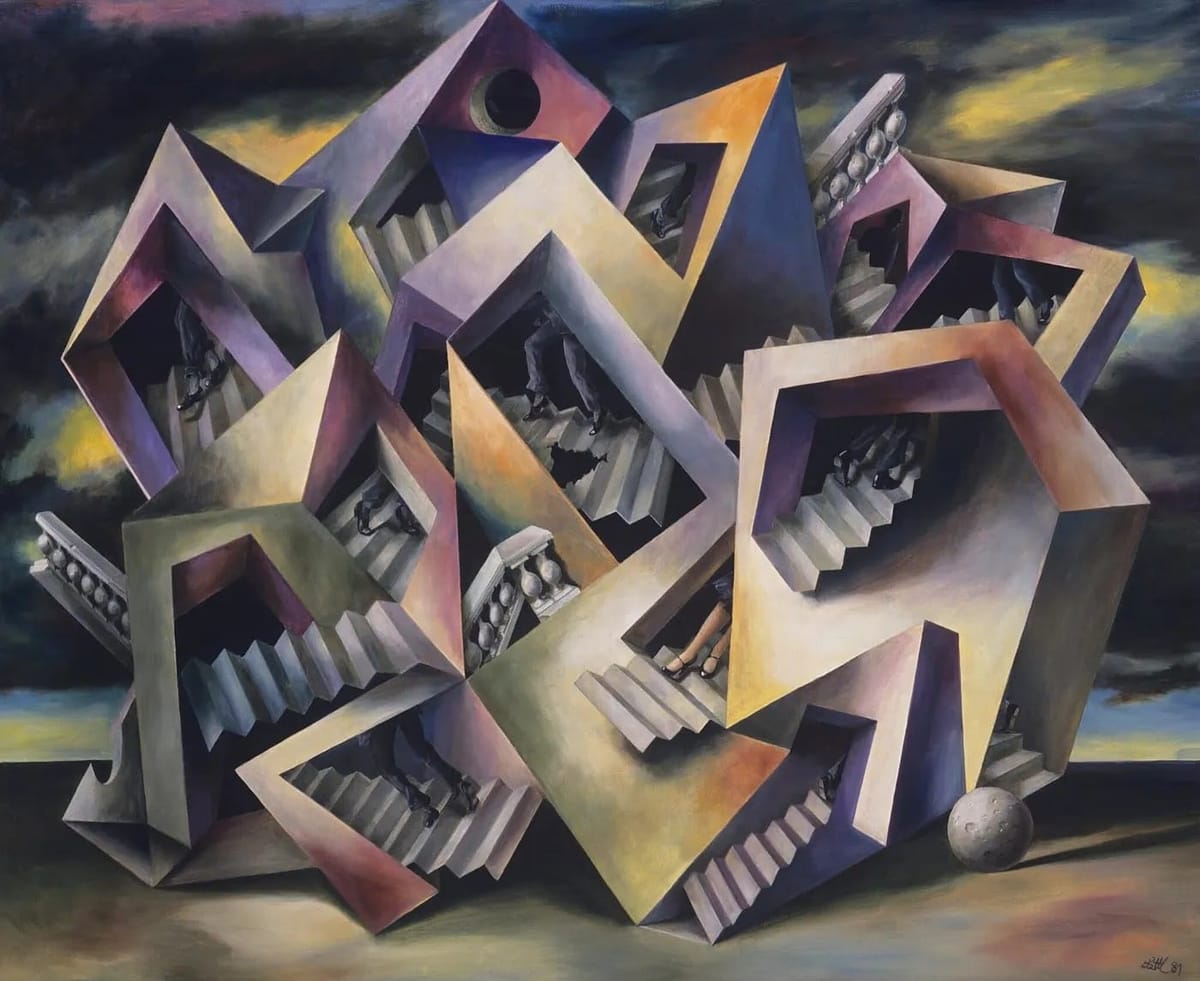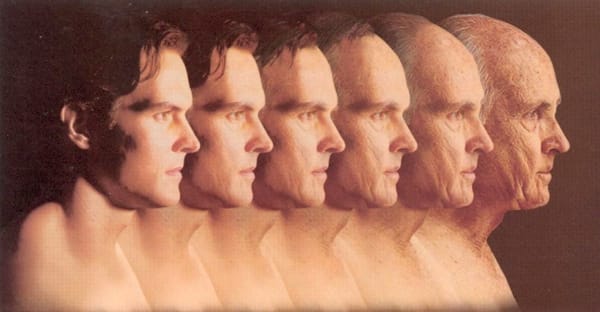Kafka’s Courtroom: Is the Legal System Inherently Dehumanizing?

In The Trial, Franz Kafka tells the story of a man who wakes up to find himself under arrest, though no one will tell him why. Josef K., a mid-level bank employee, has committed no crime, yet he is summoned to court, expected to defend himself, and slowly pulled into a process he cannot control, interpret, or escape. The officials he speaks to are vague. The courtrooms are hidden in attics and apartment buildings. The rules shift constantly. Eventually, he is executed, not because he is proven guilty, but because the system continues with or without justification.
At no point in the novel does Josef K. understand what’s happening to him. That is the point. Kafka does not construct a traditional story of injustice. He does not rely on cruelty, corruption, or explicit oppression. Instead, The Trial explores something more chilling: a system so vast, so impersonal, and so deeply embedded in bureaucracy that it no longer needs to justify itself at all. The law becomes less about what is right or wrong, and more about what simply is. It continues because it exists. It acts because it is programmed to. And in doing so, it erases the individual.
The novel remains a metaphor. But only just.
The modern legal system does not arrest people without cause, at least, not in theory. It is built on principles like due process, the presumption of innocence, and equal protection under the law. It is structured, codified, and designed to deliver fairness through impartiality. But this structure, in its scale and complexity, often sacrifices the very thing it is supposed to protect: the person.
Coldness in law is not always malevolent. It is systemic. Rules are enforced uniformly to avoid bias. Processes are standardized to create consistency. Cases are sorted, scheduled, argued, and closed with procedural efficiency. But when justice is administered at scale, humanity becomes an afterthought. The person disappears into the process.
Defendants are referred to by docket numbers. Courtrooms operate on strict timetables. Judges are trained not to show emotion. The system is not built to listen to stories. It is built to interpret evidence, apply precedent, and move on. For those caught inside it, the experience can feel indistinguishable from the one Josef K. faced: impersonal, opaque, and indifferent.
Kafka’s world is not chaotic. It is precise. Bureaucrats keep perfect files. Clerks record testimonies. Every interaction, however absurd, follows its own internal logic. This is what makes it so disorienting. It mirrors real institutions: legal, corporate, governmental, that are rational in design but irrational in experience. One is not beaten or threatened in Kafka’s court. One is worn down.
This is not far from what happens in real-life systems where access to justice is unequal. A low-income defendant without a private lawyer may spend weeks or months in pre-trial detention for a misdemeanor. A refugee navigating an immigration court may never speak to the judge deciding their fate. A child in the foster system might rotate through hearings for years without ever being addressed directly.
For example, Kalief Browder’s years-long pre-trial detention without conviction demonstrates how even in a system designed for fairness, the human being can vanish beneath bureaucracy, delay, and indifference. Arrested at sixteen for allegedly stealing a backpack, Browder spent over one thousand days in New York’s Rikers Island, much of it in solitary confinement, without ever receiving a trial. His case was eventually dismissed, but the psychological toll was irreversible; he took his own life two years after his release. Like Kafka’s protagonist, Browder was not destroyed by overt cruelty, but by a system that simply continued around him.
These outcomes are not due to a single bad actor. They are the logical output of a system designed for output. Efficiency replaces empathy. Procedure replaces understanding. The human being, once central, becomes incidental.
There is a belief that the law is neutral—that it functions like a machine: input the facts, apply the rules, and receive the correct outcome. This belief is comforting. But it is also dangerous.
Machines cannot distinguish between a person who made a mistake and a person who never had a choice. They cannot account for trauma, context, or power. And legal systems, when modeled after such machinery, begin to lose the capacity to see people at all. What remains is a system of cold logic, of mandatory minimums, pre-set sentencing, rigid immigration rules, and algorithmic bail decisions. All of this is enforced in the name of consistency.
But consistency is not justice. And neutrality, when built on unequal foundations, only reproduces inequality.
The most unsettling part of The Trial is that the court is not broken. It is functioning exactly as intended. It does not need to justify itself to Josef K., because it does not see Josef K. as someone it must answer to. He is not a participant. He is a case. And the process will continue, with or without him. The same can be said for many legal systems today. Delays, inaccessibility, and impersonality are not accidents. They are features of institutions built to manage, not to relate. In high-volume systems, such as immigration courts, eviction hearings, and small claims tribunals, the individual experience is not the design priority. Through this lens, Kafka’s court is not an outlier. It is a warning.
Efforts exist to humanize justice. Restorative justice programs bring victims and offenders into dialogue. Some courts offer trauma-informed approaches. Legal aid organizations fight to make the system more accessible, more understandable. But these are often exceptions to the norm. And as legal systems become more digital, more procedural, and more automated, the risk grows that the core problem Kafka exposed, that people are invisible to the systems judging them, will only deepen.
Franz Kafka did not write horror. He wrote a reflection. His courtrooms are not fictional in their mechanics. They are fictional only in their exaggeration. What makes The Trial so enduring is not that it shows us a foreign world; it’s that it exaggerates the one we already know.
The legal system is not inherently cruel. But it is capable of cruelty without noticing. It does not need to hate someone to ruin them. It only needs to process them, like paper in a file, like data in a system, like Josef K. at the end of his trial.
The law may pride itself on order, but in forgetting who it serves, it renders its verdict irrelevant.
References
Kafka, F. (1995). The trial. Schocken Books. The New Yorker. (2016, June 3). Kalief Browder, in his own words. https://www.newyorker.com/news/news-desk/kalief-browder-in-his-own-words
Shalby, C. (2015, June 8). Kalief Browder, teen who awaited trial for 3 years at Rikers, kills himself. PBS. https://www.pbs.org/newshour/nation/new-yorker-profiled-kaleif-browder-kills-3-years-a waiting-trial-rikers-island




